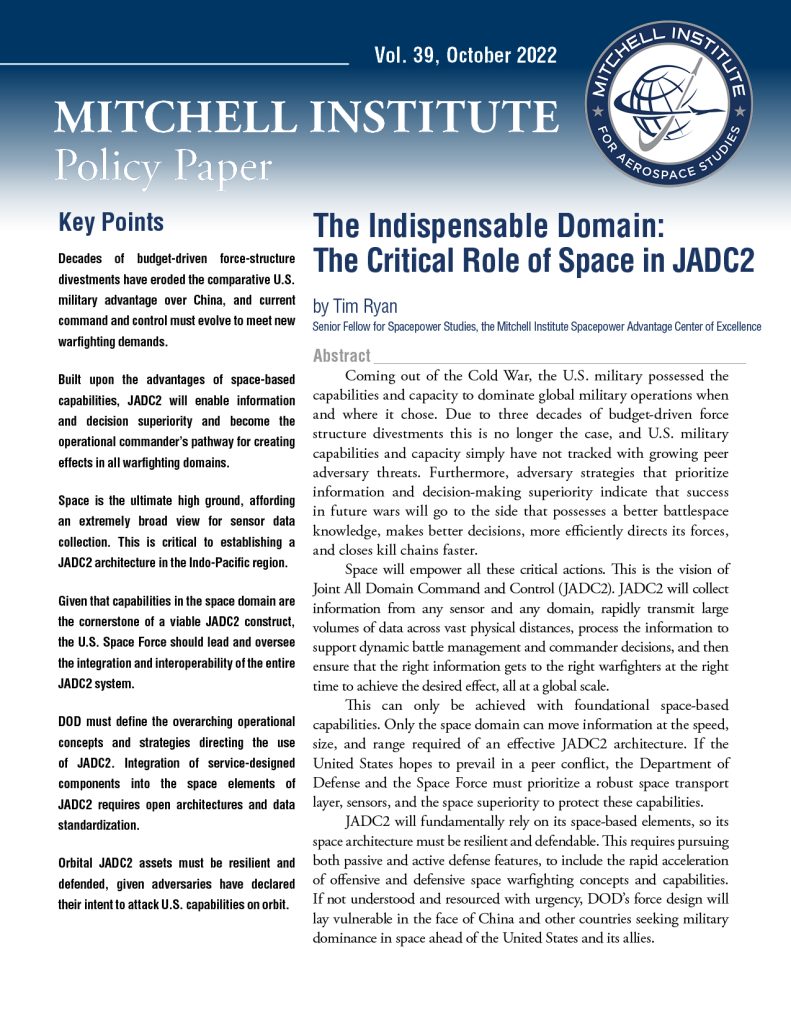Arlington, VA | October 20, 2022 — The Mitchell Institute for Aerospace Studies is pleased to announce a new entry in its Policy Paper series, The Indispensable Domain: The Critical Role of Space in JADC2 by Tim Ryan, Senior Fellow for Spacepower Studies at the Mitchell Institute Spacepower Advantage Center of Excellence.
Coming out of the Cold War, the U.S. military possessed the capabilities and capacity to dominate global military operations when and where it chose. Due to three decades of budget-driven force structure divestments, this is no longer the case. Adversary strategies that prioritize information and decision-making superiority indicate that success in future wars will go to the side that possesses better battlespace knowledge, makes better decisions, more efficiently directs its forces, and closes kill chains faster. Joint All Domain Command and Control (JADC2) is the concept that will enable U.S. forces to collect information from any sensor and any domain, rapidly transmit large volumes of data across vast physical distances, process the information to support dynamic battle management and commander decisions, and then ensure that the right information gets to the right warfighters at the right time to achieve the desired effect, all at a global scale.
This can only be achieved with foundational space-based capabilities. Only the space domain can move information at the speed, size, and range required of an effective JADC2 architecture. JADC2 will fundamentally rely on its space-based elements, so its space architecture must be resilient and defendable. This requires pursuing both passive and active defense features, to include the rapid acceleration of offensive and defensive space warfighting concepts and capabilities. If the United States hopes to prevail in a peer conflict, the Department of Defense and the Space Force must prioritize a robust space transport layer, sensors, and the space superiority to protect these capabilities.
The Mitchell Institute Policy Papers is a series presenting new thinking and policy proposals to respond to the emerging security and aerospace power challenges of the 21st century. These papers are written for lawmakers and their staffs, policy professionals, business and industry, academics, journalists, and the informed public.
For media inquiries, email our publications team at publications.mitchellaerospacepower@afa.org
Copies of Policy Papers can be downloaded at https://www.mitchellaerospacepower.org/category/publications/
Note: A version of this paper was released pre-publication in September at the 2022 Air Space Cyber Conference.
Image: AFRL
Links Related to This Event
- Air & Space Forces Magazine | New Mitchell Institute Paper Argues Space Force Must Take Lead Role in JADC2
- Real Clear Defense | U.S. Needs Space-Based Weapons To Defend JADC2
- Breaking Defense | Give JADC2 to Space Force, along with ASAT weapons: Mitchell report
